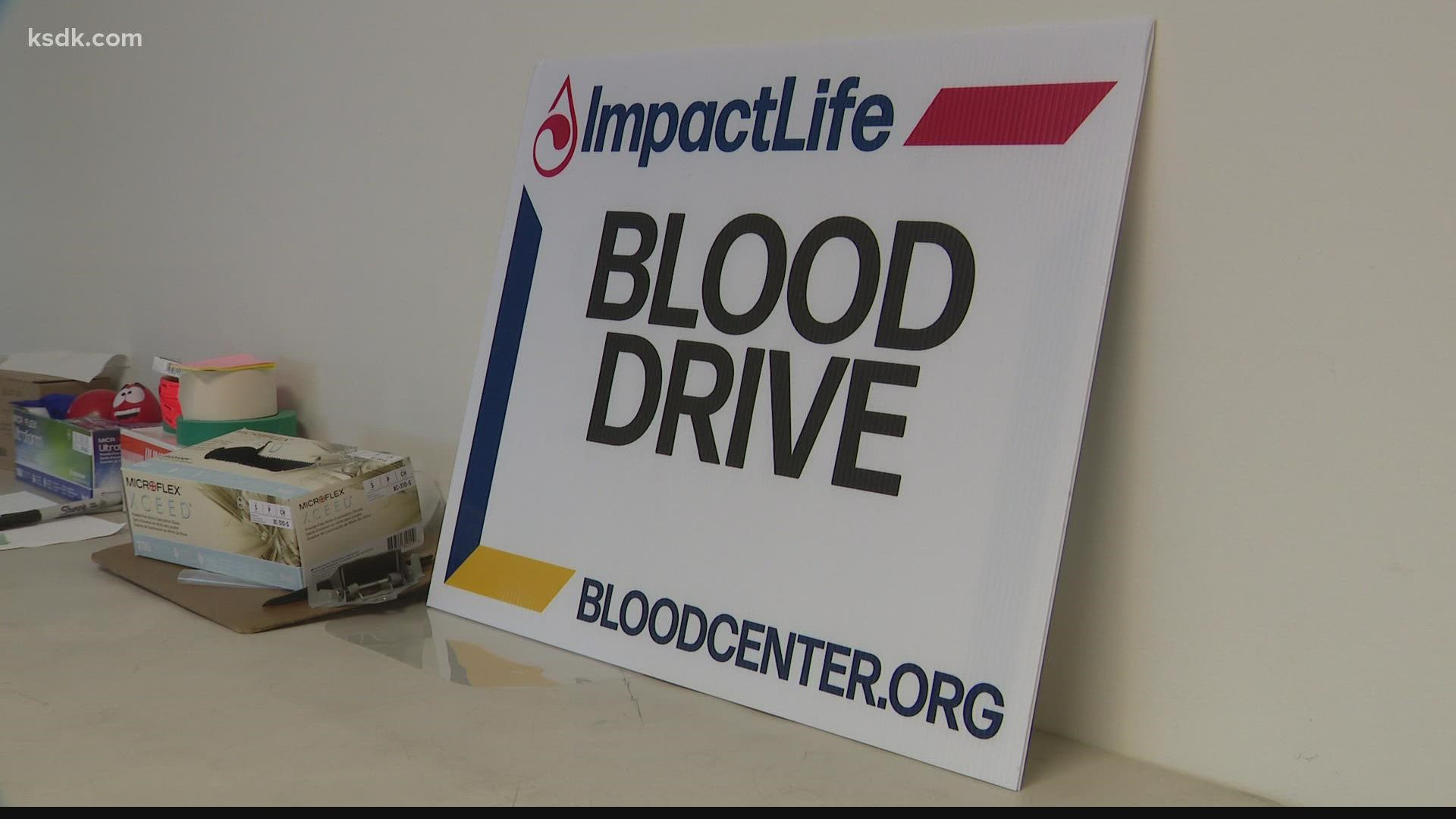ST. LOUIS — This is not a hospital but it is an emergency room.
That's because what's stored here at ImpactLife, is the lifeblood of emergencies, literally.
"ImpactLife supplies to over 125 hospitals throughout our region which Iowa, Illinois, Wisconsin and Missouri," said spokesperson Lindsay Peters.
And they're sounding the alarm. If this were the military, they'd be at DEFCON 1.
"Blood centers all throughout the country are experiencing levels of inventory that are below anything that they've seen in the past 10 years plus," Peters said.
The blood donation deficit is a by-product of the pandemic which has caused canceled blood drives, staffing shortages and donor fear of COVID exposure.
"There's not a whole lot that I personally remember," said 43-year-old Brian Dawes.
Dawes of St. Charles is a nature-lover.
"Personality-wise, you know, I like to be outside hunting, camping, fishing, four-wheeling and stuff like that," he said.
But this outdoorsman recently found himself inside the Intensive Care Unit at SSM Health St. Joseph Hospital.
"I was in a lot of pain," Dawes said. "My hoodie was drenched in sweat I was moaning and groaning and you know I mean I couldn't really stop it."
He had to be rushed into surgery for a life-threatening abdominal aortic aneurysm.
"Brian was going through a lot, he was very, very sick," said Jordan Johnston, one of his nurses.
"I remember them asking, you know, 'What day is it?' And I answered the following day. I didn't know was eight days later," Dawes said.
He says he's grateful for his care team and for the units of blood that helped him merge onto the road to recovery.
"If we don't have blood, that's a huge deal. Patients' lives are at stake, "says Johnston.
Back at ImpactLife, they are hoping for circulation of confidence even in this pandemic.
"We have cleaning protocols, we have masking protocols, we have vaccination requirements for our staff, "explains Peters.
And as Brian Dawes found out, you don't have to be a doctor to save lives.
"To be honest with you, I would say that the last time I had the opportunity to give the blood I said, well, I will, if I have to, "Dawes remembers. "And I can assure you, from now on I'm going to get blood. It saved my life ."

